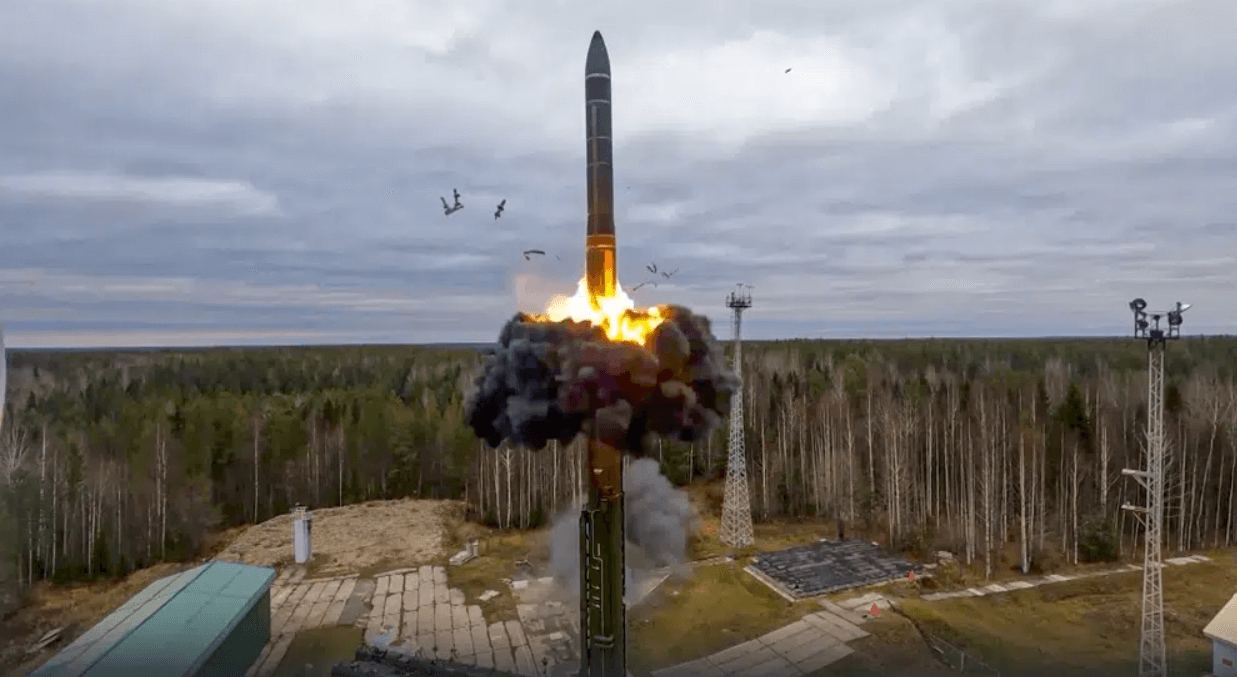In a report to Congress on Tuesday, the US Department of State accused Russia of violating the New Strategic Arms Reduction Treaty (START) by neither allowing on-site inspections nor resuming the Bilateral Consultative Commission (BCC) in accordance with the pact.
Overview
The New START treaty restricts both nations from deploying more than 1,550 nuclear warheads on delivery systems, including intercontinental ballistic missiles, submarine-launched ballistic missiles, and bombers. As per the Centre for Arms Control and Non-Proliferation, Russia has about 5,977 nuclear warheads, of which 1,588 are deployed, whereas the US has 5,550, with 3,800 being active.
It is the only treaty to regulate the largest nuclear arsenals in the world, allowing on-site inspections in both countries. On-site inspections were mutually suspended in March 2020 due to the COVID-19 pandemic.
In August, Russia “unilaterally” suspended on-site inspections, claiming that US-led Western sanctions have deprived it of “the right to carry out inspections on American soil” due to travel restrictions.
Washington has been eager to keep the treaty, but relations with Moscow are at an all-time low due to Russia's invasion of Ukraine, which could complicate efforts by President Joe Biden's administration to keep the treaty and reach a follow-up agreement.
— Gurbaksh Singh Chahal (@gchahal) February 1, 2023
The US and Russian delegations were supposed to meet in Egypt in November to discuss resuming the BCC, but Moscow cancelled at the last minute without agreeing to a new date. The BCC, which is supposed to meet twice a year, last convened a meeting in October 2021.
However, a State Department spokesperson claimed there was a “clear path to re-compliance,” stressing that Washington continues “to strongly value the treaty.” “There is nothing preventing Russian inspectors from traveling to the United States and conducting inspections,” the spokesperson asserted in reference to Russia’s accusations of being unable to conduct on-site inspections in the US, owing to sanctions.
Russia’s Response
In an email to the Wall Street Journal on Tuesday, Russian Deputy Foreign Minister Sergei Ryabkov noted that “Russia has been consistently in full and strict compliance with central limits of the treaty,” without mentioning the inspections issue. He also discussed “some current issues of arms control” with the new US Ambassador, Lynne Tracy, on the same day.
The New START was mutually renewed by both countries in 2021 for another five years. In this respect, Ryabkov remarked that it is a “very possible scenario” that the pact may be cancelled after 2026.
Last week, he told Russian newspaper Kommersant that “as long as the US doesn’t reconsider its extremely hostile line against our country and abandon its policy of cultivating threats to Russia’s national security,” any “positive signals” about New START would be “unjustified, poorly timed, and inappropriate.”
💬Anatoly Antonov: The situation with New START is a direct result of the hybrid war unleashed by the West against our country.
— Russian Embassy in USA 🇷🇺 (@RusEmbUSA) February 1, 2023
🔗Read in full: https://t.co/66Sw8tE5qz pic.twitter.com/MacD4bot0v
Similarly, Russian Ambassador to the US Anatoly Antonov asserted that “arms control cannot be isolated from geopolitical realities,” and thus Moscow did not find it appropriate to invite the US military to inspect its strategic facilities at this time.
Reactions
In a joint statement, Republican Senators Roger Wicker (R-MS) and Deb Fischer (R-NE), and Representatives Mike Rogers (R-AL) and Doug Lamborn (R-CO) on the Senate and House Armed Services Committees, slammed Russia, saying that “Moscow cannot be trusted to abide by any international agreement.”
That's not a future I'm confident we survive. The international community needs to keep the pressure on. Putin must be made to understand there's no room for playing games with this treaty, and the only way to avoid "strategic defeat" is by withdrawing his forces from Ukraine.
— Derek Johnson (@derekjGZ) January 31, 2023
In a similar vein, Democratic Senators Bob Menendez (D-NJ), Jack Reed (D-RI), and Mark Warner (D-VA) said in a joint statement that “compliance with New START treaty obligations will be critical to Senate consideration of any future strategic arms control treaty with Moscow.”

